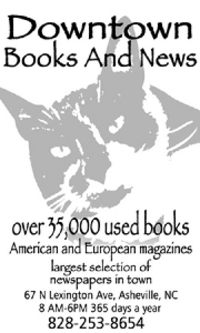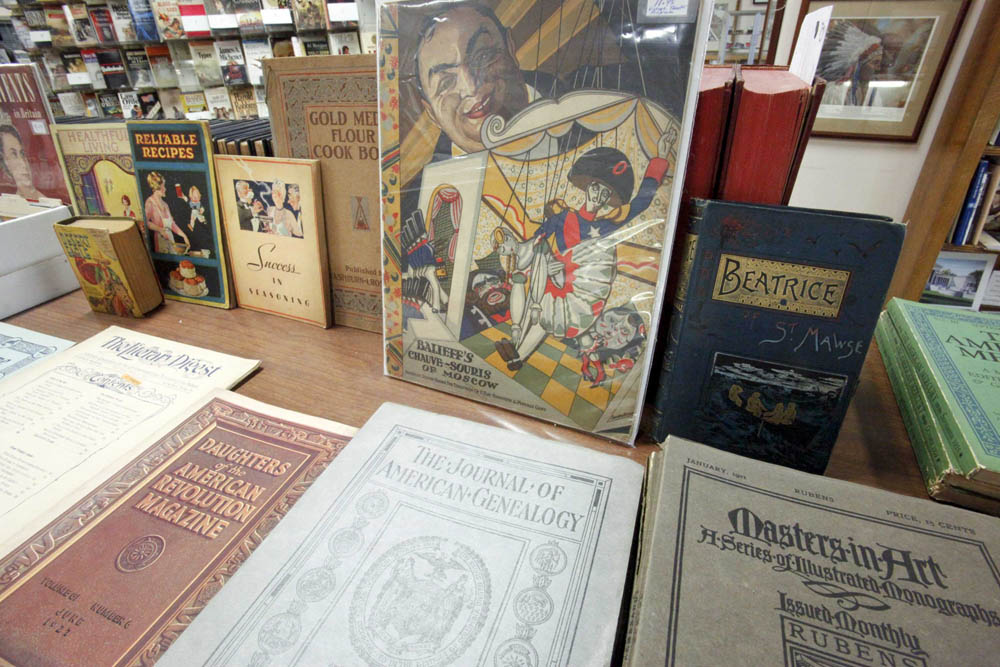An Editorial by Aaron Gunn

In 2006, Tower Records filed Chapter 11 bankruptcy while Virgin Megastores around the world closed their doors. The culprit was the proliferation of on-line retail outlets, downloadable media, and portable media players, highlighting the obsolescence of a business model whose main selling point was convenience and selection.
Barnes & Noble, on the other hand, rode high in the fourth quarter of 2006, after steady growth for the past two years. Despite its seeming vulnerability to the same market pressures that forced the hand of those vaunted music outlets, B&N is consistently showing itself immune to collapse. B&N’s success can be partially attributed to an early on-line presence, brand name recognition and a straightforward corporate strategy. B&N operates along the same corporate model as Gap or Starbucks, relying upon 100% market share and deep discounting to be effective. In this model, the brand name takes precedence over the product. Even brand names, however, may become inconsequential when the product can be acquired more easily and with more satisfaction somewhere else.
The digital age has not managed to find a suitable replacement for the book, nor will it ever. Books literally embody our collective cultural development, our shared and differing histories and our deepest convictions. Furthermore, the form of the book helps us mediate the problem between the individual and the social. Composed from identical materials, sharing in a collective experience, we still remain separate entities in distinct populations with specific ties and allegiances. Like the book, we have an undeniable material aspect. Digital information obscures this problem with the irreducible but vastly-reduced binary code.
Like people, some books are more unique than others. Mega-bookstores are in many ways unable to take advantage of that fact, thus creating opportunities for independent bookstores to do so themselves. The Internet has increased our susceptibility to and desire for new sources of information, and often these sources are out-of-print, expensive or just bizarre. A carbon-copy selection and big-box format can never meet the needs of a population that is becoming increasingly sophisticated and empowered as conscientious consumers and cultural contributors.
Brick & mortar stores retain an individual fingerprint. This is especially true for used bookstores, which reflect the interests and character of their respective communities. A used bookstore is impossible to duplicate — it cannot even duplicate itself from day to day. And as everyone knows, divergence and diversity are the best means of insuring robust health. If it’s a weak summer for new books, what of it? There’s a wealth of books people have been “meaning to read”.
Under the brand name of listing services like Biblio.com, individual sellers can compete against the larger chains if they are willing, as bookstores have done historically, to see each other as associates, cultural stewards, and specialized branches of the same network. We can employ all the tactics of larger chains while emphasizing our superior adaptability to the needs, concerns and trends of global and local markets. Practically, this may entail more communication and referrals between bookstores, creative marketing and advertising using the Biblio.com label, and the development of distinct, integrated on-line and local identities. Judicious pricing policies that respect our associates, our product and the traditions of our trade are also key. If it is apparent that booksellers do not value books, why should anyone else?
The mega-bookstore business model is homogenous and anonymous, a dinosaur in a mammalian world. It differs in no significant way from other large-scale media outlets. By its corporate nature, it cannot admit the possibility that another bookstore might be better prepared to serve a customer’s needs. It cannot even admit the possibility of many types of customers. This runs counter-intuitive to the very nature of the Internet, which is largely open source, and absolutely adept at reflecting the vast range of human experience. On the strength of a name brand, diversified holdings and considerable financial resources, mega-bookstores plod forward into a territory that smaller, independent stores are already better adapted to because the Internet is always localized and specific. Independent retailers must go beyond the cries of “buy local” and embrace the technology that is the natural extension of our chosen profession- networks not chains.
Aaron is part of Downtown Books and News, an independent bookstore in Asheville, NC. Downtown Books & News has 18 years of experience serving their local community and over 6 years serving their virtual one.
The opinions expressed here are solely those of the author and do not necessarily reflect the views of Biblio or agencies and individuals whose names appear here.





